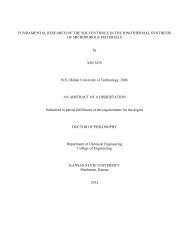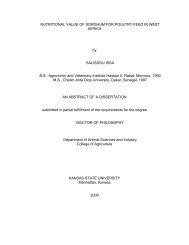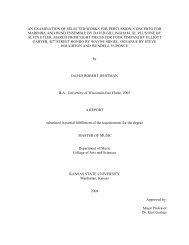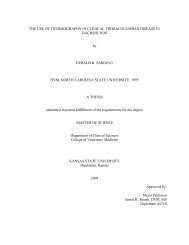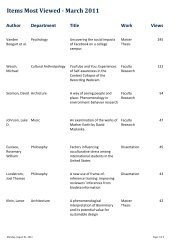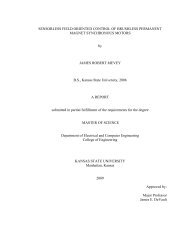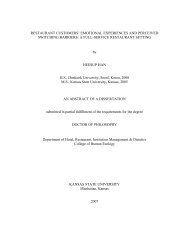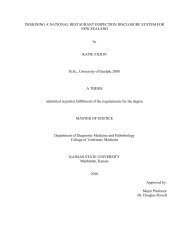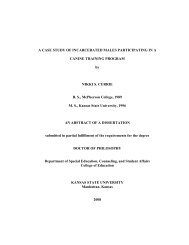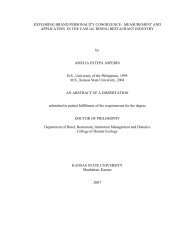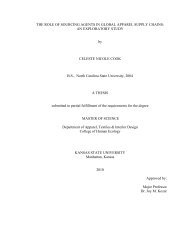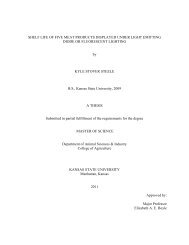SELFISH INTENTIONS - K-REx - Kansas State University
SELFISH INTENTIONS - K-REx - Kansas State University
SELFISH INTENTIONS - K-REx - Kansas State University
Create successful ePaper yourself
Turn your PDF publications into a flip-book with our unique Google optimized e-Paper software.
social order, educate dependents, and produce wealth.” 27 Divorce provisions were therefore a<br />
tool to be used when poorly kept women or children were going to become wards of the state or<br />
if a household seemed to be undermining political authority.<br />
By the Revolutionary period, new political thought began to affect some of the thinking<br />
on divorce. One of the most notable thinkers in this regard was Thomas Jefferson. As Glenda<br />
Riley notes, “Virginia attorney and patriot Thomas Jefferson, for example, coupled ideas<br />
regarding independence and happiness to divorce some years before he presented a similar<br />
argument for terminating America’s relationship with England in the Declaration of<br />
Independence.” 28 Jefferson’s notes from the early 1770s regarding a requested divorce by a<br />
couple after nineteen turbulent months of marriage showed that he attempted to link<br />
revolutionary ideas and divorce in order to persuade the Virginia legislature to dissolve the<br />
marriage. Even though Jefferson never presented his case to the legislature due to the husband’s<br />
death, the divorce petition he prepared in the early 1770s employed the same principles that he<br />
would later use to justify the revolution. 29<br />
Because Virginia law only allowed the legislature to grant separate maintenance decrees,<br />
Jefferson prepared a legal brief to convince the legislators to expand the policy to grant an<br />
absolute divorce. According to Riley, Jefferson’s argument combined the following: the<br />
“Puritan argument that marriage and divorce were civil matters, Lockean arguments against<br />
indissolvable contracts, and emerging American attitudes regarding women. He applied such<br />
terms as liberty, natural right, equality, and dissolvable contract not to the plight of the American<br />
colonies, but to an individual citizen caught in a distressing marriage.” 30 Jefferson’s stance on<br />
27 Ibid., 15.<br />
28 Riley, 53.<br />
29 Ibid.<br />
30 Ibid., 54.<br />
8



